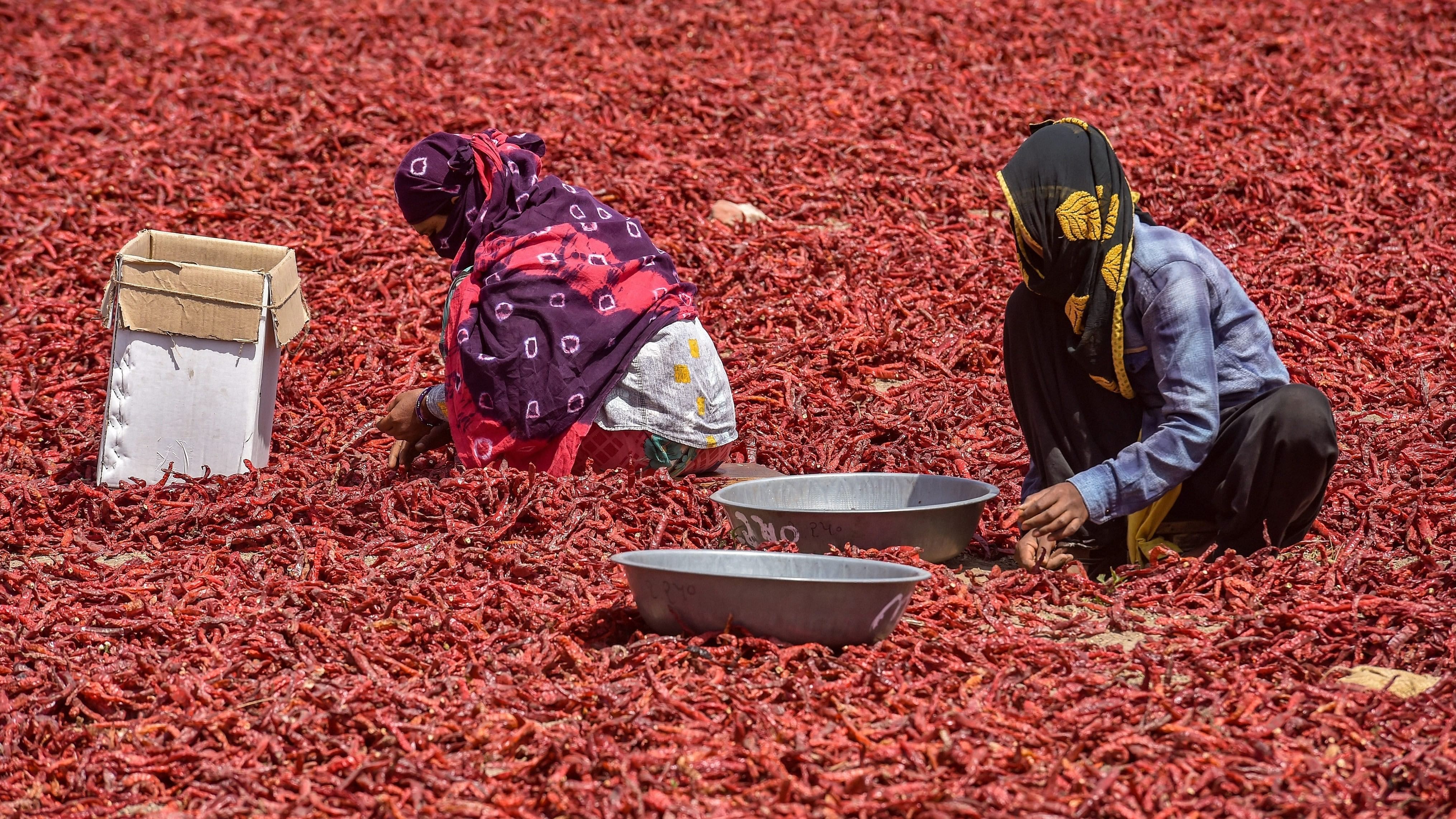
Ahmedabad: Workers remove stalks from chilli peppers at a farm on the outskirts of Ahmedabad,.
Credit: PTI File Photo
New Delhi: Highlighting several shortcomings in the Minimum Support Price (MSP) mechanism, State Bank of India (SBI) Research on Monday suggested the government should look into an alternative mechanism that would encourage crop diversification and put an obligation on private parties for buying agricultural products at above MSP.
“While MSP has been instrumental in price discovery mechanism, benefitting 1.6 crore farmers, the issues innate to MSP mechanism viz. needless politics, disincentivising private investment, neglect of non-MSP crops, reduction in export competitiveness and burden of trade disputes, alternative mechanisms needs to be looked into vigorously,” SBI Research said in a note ‘Prelude to Union Budget 2024-25’.
The suggested alternative mechanisms include putting obligation on private parties for buying crops at MSP (or above MSP), encouraging crop diversification, promoting high-value and climate-resilient crops to increase farmers’ income opportunities and strengthening agricultural marketing infrastructure through increase in public investment in agri infrastructure.
The government’s expenditure on procurement of foodgrains on MSP increased to Rs 3.4 lakh crore in 2022-23 from Rs 1.79 lakh crore in 2014-15. The share of food grains procured by the government through MSP vide institutional mechanism works out to 6 per cent of the total Agri & Allied output, noted the report.
The MSP of all the 22 crops has witnessed an average increase of over 100 per cent during the last decade.
Referring to the National Agriculture Market (e-NAM) data, SBI Research noted that prices of major crops are above MSP. Prices of not so widely cultivated crops are a little under MSP.
“Hence the Government of India could devise a plan to provide price support to the farmers, if only market prices fall lower than MSP,” it said. “Also, promising sectors with incremental value addition like livestock and horticulture should occupy a larger share of policy initiatives,” it added.
In a report released a couple of weeks ahead of the presentation of the Union Budget, SBI Research said that the fiscal deficit is likely to decline to 4.9 per cent of the country’s gross domestic product (GDP) in the current financial year from 5.8 per cent in 2023-24.
In the Interim Budget presented in February the government pegged the fiscal deficit for 2024-25 at 5.1 per cent of GDP. “On the back of stupendous growth in GST revenues along with higher dividends from PSUs and RBI, we believe that Government may budget fiscal deficit of less than 5 per cent of GDP (may be 4.9 per cent) for FY25,” note the report authored by SBI Group Chief Economic Adviser Soumya Kanti Ghosh.
Capital expenditure which was budgeted at Rs 11.1 lakh crore in the interim budget is expected to increase to Rs 11.8 lakh crore in the upcoming budget. Thus, the total capex of the government (capex through budget and central public sector enterprises and grants for creation of capital assets) is likely to increase to Rs 19.1 lakh crore in 2024-25 from the earlier estimate of Rs 18.4 lakh crore, it said.